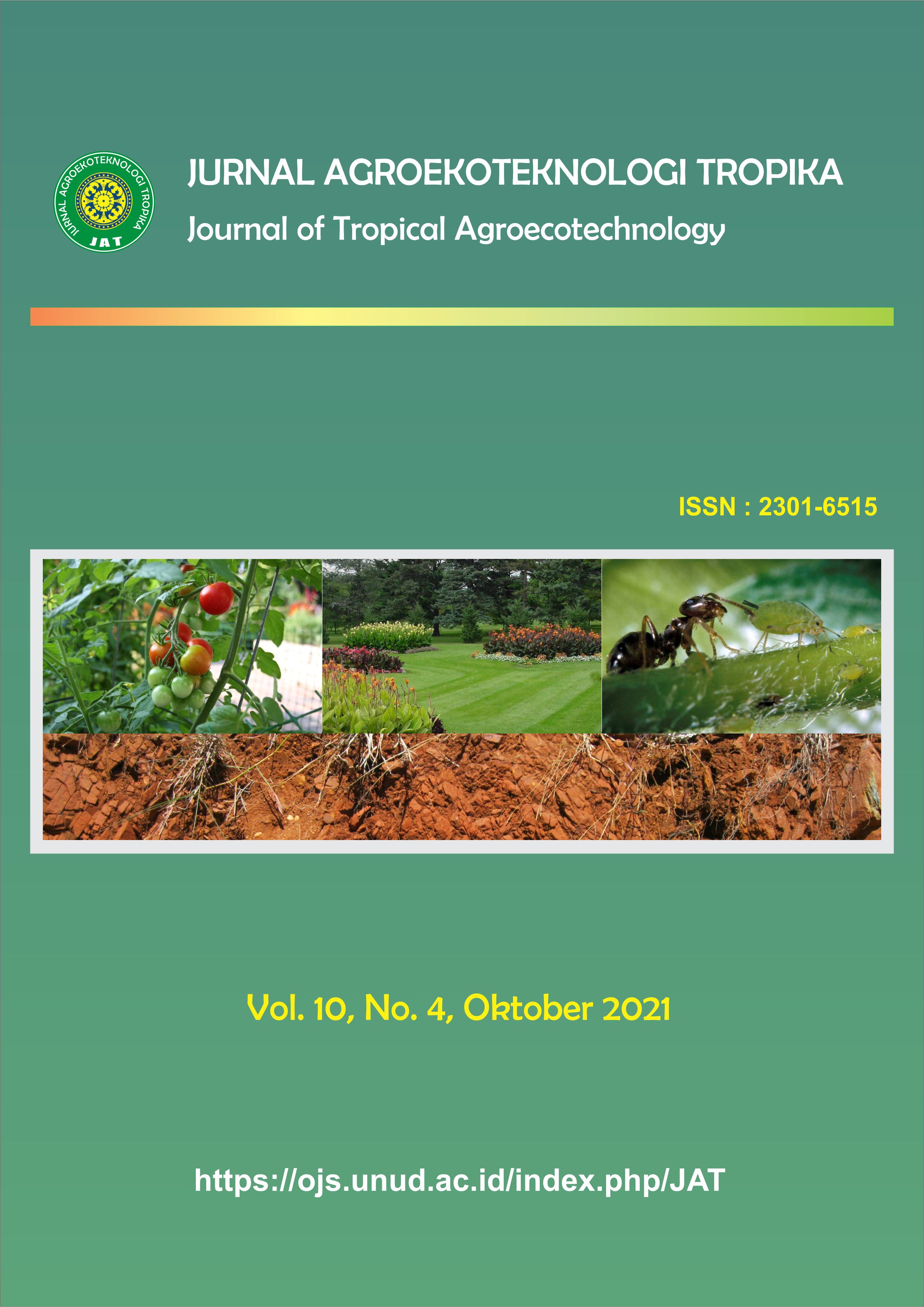Pengujian Beberapa Varietas Unggul Padi (Oryza sativa L.) terhadap Tingkat Serangan Hama Penggerek Batang
Abstract
The Testing of Several Hight Yielding Varieties (Oryza sativa L.) to The Attack Level of Stem Border tests
The purpose of the study was to determine the level of stem borer attack on several high-yielding varieties of rice cultivated in Bali to obtain varieties resistant to stem borer as a substitute for Ciherang. The study cultivated various superior rice varieties, namely Inpari 19, Inpari 40, Inpari blas, Situ Bagendit, and Ciherang varieties for comparison. The incidence and severity of stem borer attacks were assessed in the field using the diagonal random sampling method. The sample measurement of 10 plant clumps was carried out diagonally on the plot area in the form of a natural plot measuring 400 m2. The appropriate design was 1-factor randomized block design with 5 treatments and 5 replications. The data collected was related to the percentage of rice stem borer in the vegatative phase 2-6 weeks after planting (WAP) “Sundep” (% dead hearts) and the generative phase 8-10 WAP “beluk” (% white ear heads). The measurenent of the attack level is based on the tehnical instuctions for observing and reporting plant-disturbing organisms and climate change impacts (OPT-DPI) of the Ministry of Agriculture in 2018 as well as the production of tons per hectare. The analysis used a diversity fingerprint (ANOVA) and continued with a different test for the mean value of 5% LSD. To see the development of the rice stem borer, it was further analyzed by regression analysis. The results showed that the percentage of stem borer attack on Inpari 40 and Inpari blast varieties was known to be 0% each with a square root value (? (x + 0.5) = 0.71%. So the Inpari 40 and Inpari blas varieties are candidates for resistant varieties to replace Ciherang. The level of resistance of varieties such as Inpari 19, Sit Bagendit, and Ciherang to stem borer cannot be determined because the attack is still below the economic threshold (<10%).



